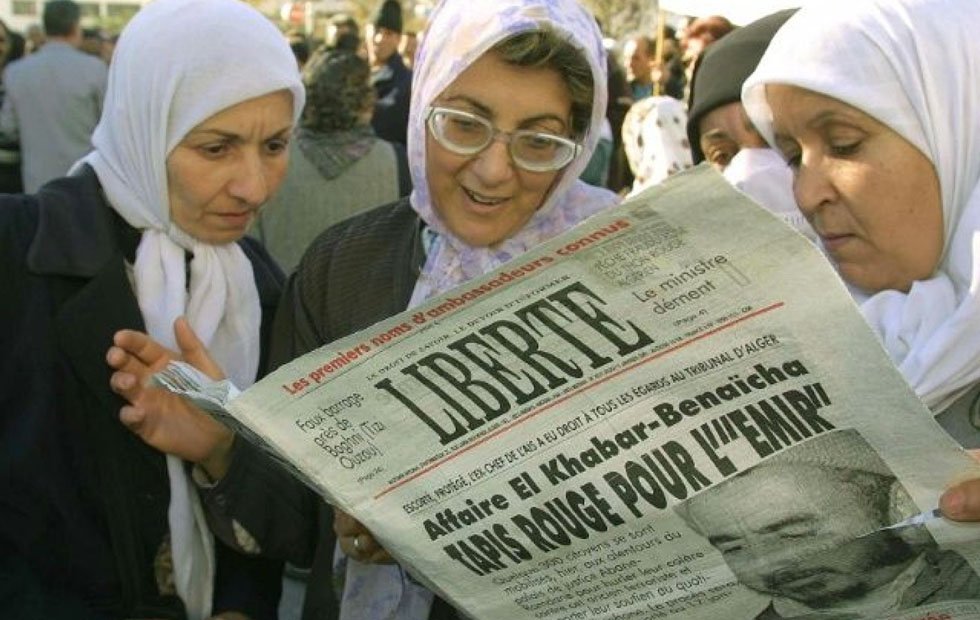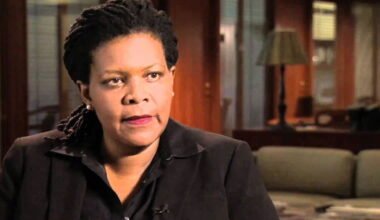President Abdelmadjid Tebboune’s administration is cracking down on independent journalism and civic expression in Algeria. This continues the democratic decline that began in late 2024.
Legal & Institutional Framework
On August 29, 2023, a new Information Law was established in Algeria, prohibiting foreign investment in media and establishing harsh regulations on journalistic activities. This legislation criminalizes the spread of “false news,” the receipt of foreign funds, and includes terms that are ambiguously defined, such as “threatening national security” and “undermining public order.” Additional penal codes are frequently invoked to suppress dissenting voices, with charges of undermining national unity, insulting institutions, or engaging in economic espionage.
Timeline of Repressive Actions
| Date | Event |
|---|---|
| December 24, 2022 | Ihsane El Kadi arrested; accused of receiving foreign funds. |
| April 2, 2023 | El Kadi sentenced to 5 years, fined 11.7 million dinars. |
| June 18, 2023 | Supreme Court rejects El Kadi’s appeal. |
| November 1, 2024 | El Kadi released via presidential pardon. |
| October 4, 2024 | Badreddine Guermat arrested for critical Facebook post. |
| October 6, 2024 | Guermat sentenced to one year in prison, fined 100,000 dinars. |
| December 29, 2024 | Abdelwakil Blamm arrested in Chéraga. |
| January 6, 2025 | CPJ urges Blamm’s release. |
| March 16, 2025 | Boualem Sansal arrested at Algiers Airport. |
| March 27, 2025 | Sansal sentenced to 5 years in prison, fined 500,000 dinars. |
Scale & Statistics of Repression
With 243 prisoners of conscience in November 2024, Algerian media repression is worrisome. Algeria ranks 139th out of 180 in Reporters Without Borders’ World Press Freedom Index. Media figures have been fined and imprisoned, illustrating the strain journalists confront.
Important Sites Under Pressure
| Location | Description |
|---|---|
| Algiers | Significant arrests, notably Abdelwakil Blamm in Chéraga. |
| Djelfa | Badreddine Guermat’s arrest site in October 2024. |
| Boumerdès & Algiers | Ihsane El Kadi’s places of detention. |
| National Institutions | Judiciary, Parliament, and anti-terrorism units central to prosecutions. |
Impacts on Civic Space
International organisations have noted the 2023–2025 onslaught on civil society, particularly journalists, activists, and writers. As panic grows, rights advocates see November 2024’s pardon of thousands as a calculated move. The new Information Law codifies these coercive tactics, enhancing government control over independent voices.
Broader Context & Historical Parallels
Algeria’s assault on the independent press is reminiscent of past instances, such as during the 1990s civil war when outlets faced militant attacks and state surveillance. The struggle for media freedom continues, as evidenced by the suspension, boycott, censorship, or complete shutdown of outlets like El Watan and Liberté.
International Reactions
President Macron has urged Algeria to release Boualem Sansal, calling for “common sense and humanity.” Ihsane El Kadi and Amira Bouraoui represent resistance to state censorship in Algeria.
FAQ
What is Algeria’s new Information Law?
The August 2023 Information Law bans foreign media investment, restricts journalistic practises, and criminalises false news and foreign funding.
Which journalists are affected by the crackdown?
Ihsane El Kadi, Badreddine Guermat, and Abdelwakil Blamm are among the journalists arrested and imprisoned.
International community reaction?
Organisations and public figures worldwide have called for the release of arrested journalists and authors.
What are Algeria’s media suppression precedents?
Similar to today, media outlets endured militant attacks and official surveillance throughout the 1990s civil war, highlighting press freedom challenges.
How has civic space been affected?
The crackdown has caused media outlets to fear and self-censor, and harsh restrictions prohibit independent journalism.
There are how many conscience prisoners?
Algeria had 243 prisoners of conscience in November 2024, demonstrating repression.
Conclusion
Recent judicial measures against journalists, writers, and activists in Algeria have deepened the media freedom situation. Civic space is rigorously controlled, threatening journalists and democratic ambitions notwithstanding rare political gestures like pardons. Algeria’s authoritarian track risks isolation and diminishes its democratic potential with worldwide condemnation and a poor World Press Freedom Index ranking.



